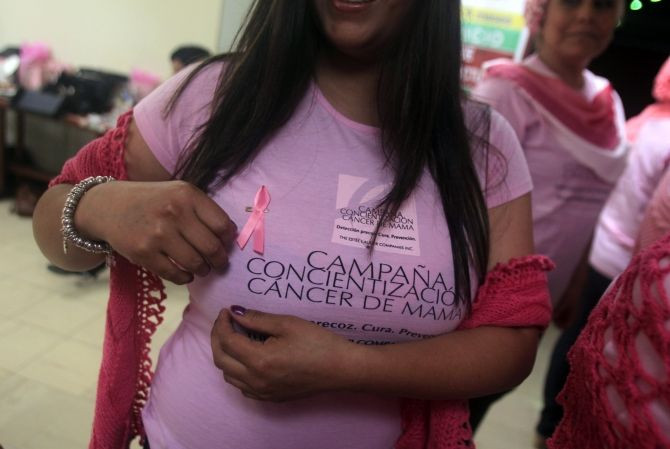Research May Lead to First Breast Cancer Vaccine Pill

Researchers have attempted to make oral breast cancer vaccines before, but they always used bacteria as a vessel, which could potentially harm the health of a patient. Researchers from the University of Cincinnati Cancer Institute and the National Institutes of Health have created a breast cancer vaccine with a virus that they believe may cut down on breast cancer recurrence. This is the first time such a technique has been used as a vaccine against breast cancer.
The team used the recombinant adeno-associated virus as the basis for their vaccine. The virus was chosen because it has been shown to have a minimal effect on human health and has been used in research into gene therapy for treating inherited genetic disorders.
"AAV is special because the virus survives the stomach," explained University of Cincinnati assistant professor Jason Steel in a statement. "Normally, you introduce a virus by mouth and it is broken down in the stomach. This virus is resistant to breakdown, which opened up the possibility of administering it orally as a cancer vaccine."
The trial tested two strains of AAV. One was able to remain in the stomach, while the other escaped the stomach and moved throughout the blood stream. The animal model was also performed using an injection, similar to how most vaccines are delivered into the system. Researchers sought to find out which delivery method was more effective at combating breast cancer tumors, both in the long- and short-term.
They found that the strains of the virus that were able to remain in the stomach were more effective at combating the tumors than the virus that traveled throughout the bloodstream. In fact, the viruses that remained in the stomach were so successful that none of the animal models developed tumors after a year.
Receiving the vaccine orally proved to be more successful than intravenous injections as well. There was a 100 percent increase in the amount of antibodies produced when the models received the vaccine by mouth than by blood.
The researchers say that the vaccine will be a powerful ally for individuals who have been treated for certain types of breast cancer and for people who have a high risk of developing the illness.
The study was published in the journal Molecular Therapy.



























